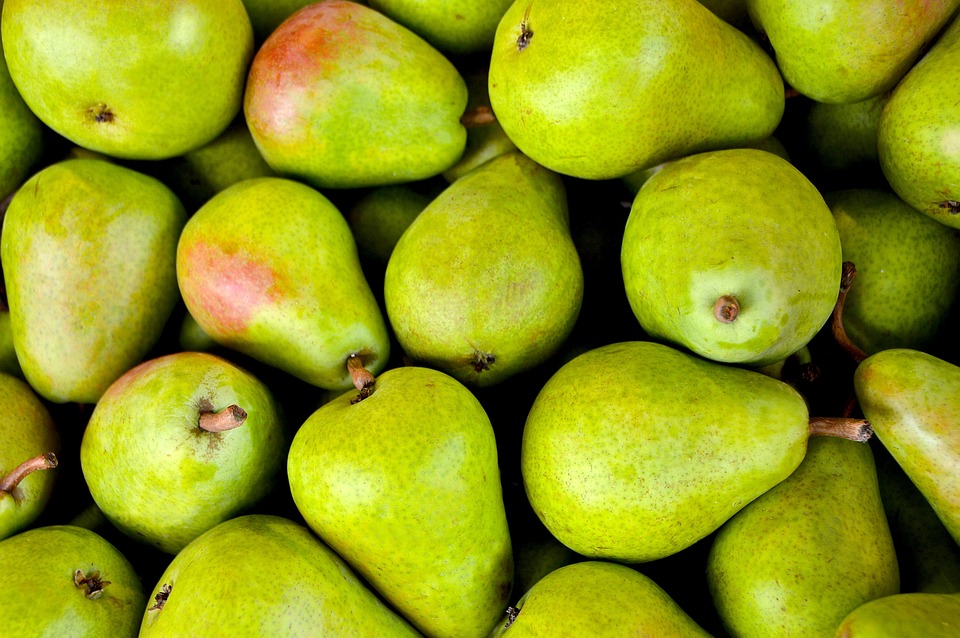Understanding Hiatal Hernia
Hiatal hernia is a condition where a portion of the stomach pushes up into the chest cavity through an opening in the diaphragm called the hiatus. This can lead to symptoms such as heartburn, chest pain, difficulty swallowing, and regurgitation of stomach acid. Hiatal hernias can be classified into two types: sliding and paraesophageal. Sliding hernias are more common and occur when the stomach slides up into the chest, while paraesophageal hernias involve the stomach pushing up next to the esophagus.
Diagnosis and Treatment of Hiatal Hernia
Diagnosing a hiatal hernia typically involves a physical exam, medical history review, and imaging tests such as a barium swallow or endoscopy. Treatment options for hiatal hernias include lifestyle changes, medications to reduce stomach acid, and in some cases, surgery. Lifestyle changes may include weight loss, avoiding trigger foods, elevating the head of the bed, and not eating right before bedtime. Medications such as proton pump inhibitors (PPIs) or H2 blockers can help reduce stomach acid and relieve symptoms. In cases where lifestyle changes and medications are not effective, surgery may be recommended to repair the hernia and prevent complications.
Introduction to gastric sleeve Surgery
Gastric sleeve surgery, also known as sleeve gastrectomy, is a surgical weight loss procedure where a portion of the stomach is removed to create a smaller, sleeve-shaped stomach. This restricts the amount of food that can be eaten, leading to weight loss. Gastric sleeve surgery is typically performed laparoscopically, which involves making small incisions in the abdomen and using a camera and specialized instruments to perform the surgery.
Hiatal Hernia and Gastric Sleeve Surgery
For individuals with hiatal hernias who are considering gastric sleeve surgery, there are additional considerations that need to be taken into account. During gastric sleeve surgery, the stomach is reshaped and reduced in size, which can potentially worsen a hiatal hernia. In some cases, the surgeon may repair the hernia during the gastric sleeve surgery to prevent complications.
Post-Operative Care and Follow-Up
After gastric sleeve surgery, patients with hiatal hernias may need to take extra precautions to prevent complications. It is important to follow the post-operative diet and exercise guidelines provided by the healthcare team. Patients should also be aware of the symptoms of hiatal hernia and report any new or worsening symptoms to their healthcare provider. Regular follow-up appointments with the surgeon and gastroenterologist may be recommended to monitor for any issues related to the hiatal hernia and gastric sleeve surgery.
In conclusion, individuals with hiatal hernias considering gastric sleeve surgery should discuss their condition with a healthcare provider to determine the best course of action. It is important to weigh the potential risks and benefits of surgery and ensure that all necessary precautions are taken to prevent complications. By working closely with a healthcare team, patients can achieve successful weight loss outcomes while managing their hiatal hernia effectively.
Most Asked Queries Regarding Hiatal Hernia With Gastric Sleeve
What is a hiatal hernia with gastric sleeve?
A hiatal hernia with gastric sleeve is a medical condition where the upper part of the stomach protrudes through the diaphragm and into the chest cavity. This can occur in individuals who have undergone gastric sleeve surgery, which involves removing a portion of the stomach to aid in weight loss. The combination of the hiatal hernia and gastric sleeve surgery can lead to various symptoms and complications that may require medical intervention.
1. Upper part of stomach protrudes through diaphragm
2. Can occur after gastric sleeve surgery
3. Can result in symptoms and complications
What are the symptoms of hiatal hernia with gastric sleeve?
The symptoms of a hiatal hernia with gastric sleeve can vary from person to person but may include heartburn, chest pain, difficulty swallowing, regurgitation of food or stomach acid, and nausea. These symptoms can be uncomfortable and impact an individual’s quality of life. It is important to seek medical attention if you experience any of these symptoms to prevent further complications.
1. Heartburn
2. Chest pain
3. Difficulty swallowing
How is hiatal hernia with gastric sleeve diagnosed?
Hiatal hernia with gastric sleeve can be diagnosed through a combination of medical history, physical examination, and imaging tests such as a barium swallow or endoscopy. These tests can help healthcare providers determine the size and severity of the hernia, as well as any potential complications that may be present. It is essential to undergo proper diagnostic testing to receive an accurate diagnosis and appropriate treatment plan.
1. Medical history and physical examination
2. Imaging tests like barium swallow or endoscopy
3. Determines size and severity of hernia
What are the treatment options for hiatal hernia with gastric sleeve?
Treatment options for hiatal hernia with gastric sleeve may include lifestyle modifications, medications to reduce stomach acid, and in some cases, surgical intervention. Lifestyle changes such as avoiding trigger foods, losing weight, and elevating the head of the bed can help alleviate symptoms. Medications like proton pump inhibitors or H2 blockers may be prescribed to reduce stomach acid production. In severe cases, surgery may be necessary to repair the hernia and prevent further complications.
1. Lifestyle modifications
2. Medications to reduce stomach acid
3. Surgical intervention in severe cases
What are the potential complications of hiatal hernia with gastric sleeve?
Potential complications of hiatal hernia with gastric sleeve include gastroesophageal reflux disease (GERD), esophagitis, Barrett’s esophagus, and in rare cases, respiratory issues. These complications can be serious and require ongoing medical management to prevent further damage to the esophagus and digestive system. It is important for individuals with hiatal hernia with gastric sleeve to work closely with their healthcare providers to monitor and address any potential complications that may arise.
1. Gastroesophageal reflux disease (GERD)
2. Esophagitis
3. Barrett’s esophagus
Popular Myths About Hiatal Hernia With Gastric Sleeve
1. Hiatal Hernia Causes Gastric Sleeve Surgery
One common Misconception about Hiatal Hernia with Gastric Sleeve surgery is that the hernia is directly caused by the surgery itself. In reality, a hiatal hernia is a condition where the upper part of the stomach protrudes through an opening in the diaphragm, and it can occur independently of any surgical procedures. The gastric sleeve surgery, also known as sleeve gastrectomy, is a weight loss procedure that involves removing a portion of the stomach to create a smaller, sleeve-shaped stomach pouch. While the surgery can sometimes exacerbate existing hiatal hernias, it is not the primary cause of the condition.
2. Gastric Sleeve Surgery Cures Hiatal Hernia
Another misconception is that gastric sleeve surgery can cure a hiatal hernia. While some patients may experience relief from hiatal hernia symptoms after undergoing gastric sleeve surgery, it is not a guaranteed cure for the condition. The surgery primarily aims to promote weight loss by reducing the size of the stomach, and while it can help alleviate symptoms of acid reflux and heartburn associated with hiatal hernias, it does not address the underlying issue of the hernia itself. Patients with hiatal hernias may still require additional treatment or management of the condition even after undergoing gastric sleeve surgery.
3. Hiatal Hernia Complicates Gastric Sleeve Surgery
There is a misconception that having a hiatal hernia makes gastric sleeve surgery more complicated or risky. While it is true that the presence of a hiatal hernia can impact the surgical approach and technique used during gastric sleeve surgery, it does not necessarily make the procedure more dangerous or difficult. Surgeons are trained to address hiatal hernias during gastric sleeve surgery and may perform additional steps such as repairing the hernia or reinforcing the diaphragm to reduce the risk of post-operative complications. With proper pre-operative evaluation and planning, surgeons can safely perform gastric sleeve surgery in patients with hiatal hernias.
4. Gastric Sleeve Surgery Aggravates Hiatal Hernia Symptoms
Some individuals believe that undergoing gastric sleeve surgery can worsen hiatal hernia symptoms or lead to new complications. While it is possible for the surgery to temporarily exacerbate acid reflux or heartburn symptoms in the immediate post-operative period, this is often a transient effect that resolves as the body adjusts to the changes in stomach size and function. In some cases, gastric sleeve surgery may even improve hiatal hernia symptoms by reducing pressure on the diaphragm and esophagus, leading to less acid reflux and discomfort. Patients should communicate any changes in symptoms to their healthcare providers for appropriate management and follow-up care.
5. Hiatal Hernia and Gastric Sleeve Surgery Are Mutually Exclusive
One common misconception is the belief that individuals with hiatal hernias are not eligible candidates for gastric sleeve surgery, or vice versa. While the presence of a hiatal hernia may influence the decision-making process for gastric sleeve surgery, it does not automatically disqualify a patient from undergoing the procedure. Surgeons will assess each patient individually and consider factors such as the size and severity of the hiatal hernia, the presence of other medical conditions, and the overall risk-benefit profile before determining the appropriateness of gastric sleeve surgery. With proper evaluation and management, individuals with hiatal hernias can still be candidates for gastric sleeve surgery to achieve weight loss and improve their overall health.
Hiatal Hernia With Gastric Sleeve
#hiatal #hernia #condition #portion #stomach #protrudes #diaphragm #chest #cavity #occur #conjunction #gastric #sleeve #surgery #involves #removing #portion #stomach #create #smaller #sleeveshaped #stomach

